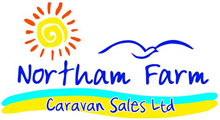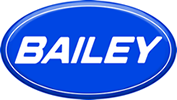Are Holiday Homes a Good Investment
Holiday homes are a great alternative to Airbnb, but it’s not always easy to find your dream location. Anyone looking to buy a holiday home probably has a lot of questions – are they worth it? Are holiday homes a good investment, and something that you should aim to invest in?
It goes without saying that holiday homes are not all sunshine and rainbows, whether you want to purchase one just for yourself, or if you want to rent it out to bring in some money on the side. Although you cannot live in a holiday home full-time due to local authority licences, they offer a fantastic opportunity for those who want to turn their property into a business.
What Qualifies as a Holiday Let?
In order for a property to qualify as a holiday home, it needs to be available to rent at least 210 days per year. Luckily, this means that there is plenty of time for you to enjoy your own space – but it might not always be at the opportune times.
Holidays homes can come in all shapes and sizes, meaning there is a lot of potential, no matter who you are. You could have a one bedroom property listed as a holiday home, or a 12-bedroom manor house. In this article, we will be talking about holiday homes that are static buildings on a holiday park site, just to give you better advice.
At Northam Farm Caravan Sales, we offer stunning holiday homes in select locations for you to enjoy however you wish. Not only that, but we also want to help you make the best decision for you, which is why we want to explore if holiday homes are a good investment for you, and what you need to consider before purchasing one.
Are Holiday Homes a Good Investment?
You can turn your holiday home into a profitable investment, but it is not easy. In order to be successful, you need to be able to market your property for potential renters with traditional and digital marketing, and be prepared for everything that comes with it.
As the owner of a holiday home, you are responsible for a great many things that can all add up – but are well worth the efforts if you do it right. From maintenance and attracting renters to increasing the property value and maintaining guest satisfaction, you will have plenty to do.
With that being said, according to data provided by Sykes Holiday Cottages, 2-bedroom holiday homes can bring in as much as £24,700 per year, and 4-bedroom homes up to £46,300 per annum. Of course, your location and property specifications will play a huge role in the numbers, but this just shows that you can make your holiday home a good investment.
What is the Average Occupancy Rate for a Holiday Let?
Occupancy rates are crucial when it comes to renting out holiday homes. This is the ratio between how many days are available for guests to stay at the property vs the number of bookings you receive per year.
For example, if your holiday home was booked for 201 days out of 365 days, the occupancy rate for the year would be around 55% and so on. The goal is for the occupancy rate to be as high as possible, so you are not losing any money by having your holiday home empty.
Just be aware that there are different qualifying criteria to meet for your holiday home to function as a business depending on where you live in the UK. If you want to get specific details, it would be best to get in touch with your local authority to find out what this will be for you.
Advantages and Disadvantages of Holiday Homes
There are lots of good and bad things about holiday homes that you need to take into consideration before purchasing one. Depending on how you wish to use it, you might want to consider the logical points regarding income and tax advantages, but also the amount of work that goes into maintaining them for renters.
Advantages
We will have a quick look at the advantages of purchasing a holiday home in the UK and why you might love the idea of investing in one when the time is right.
Great Income Potential
Compared to many other investments, property investment is less risky. When investing in short-term holiday lets, you are setting yourself up for the potential of bringing in a lot of income, and therefore covering all your costs and more.
Tax Advantages
Since furnished holiday homes are considered a business if they meet the criteria, you could be eligible for tax benefits. These may not be available to buy-and-let landlords, and may include business rates relief, mortgage interest tax relief, and more.
They Are Becoming Increasingly Popular
Over the years, self-catering holidays have grown increasingly popular. This means that there are likely always going to be people who want to stay in your holiday home and self-cater. Not only that, but the concept of “workcations” is becoming more popular, too, so there is a chance that you will not need to worry about renters depending on where your holiday home is.
Disadvantages
Some of the notable disadvantages of holiday homes include the following:
- Managing the property is a lot of work
- You don’t know who is staying in it
- Added council tax due to tax changes and licensing schemes
- Peak holiday season is challenging
Below, we will cover three key disadvantages that you need to consider when looking to buy a holiday home: inconsistent income, responsibility, and the fact that stays may not feel like holidays.
Income is Inconsistent
If you want to rent out a holiday home, you need to know that income can be inconsistent. For example, during the COVID-19 pandemic, no one was allowed to stay in holiday homes, and therefore income came to a halt for owners.
You Are Responsible for it
This might be obvious, but you need to remember that you are responsible for your holiday home. If you do not have the time, energy, or finances to take on this responsibility, then you should not get one. Ultimately, you will be under more stress if you intend to rent your holiday home out to others, and it needs to be treated like a business.
Staying There May Not Feel Like a Holiday
When you purchase a holiday home with the purpose of renting it out to others, staying there might not be as relaxing as you hope. Rather, a lot of your time may be spent getting the place ready for the short-term tenants, carrying out renovations, or checking the area.
Holiday Let Return on Investment
What you get in return for investing in a holiday home will depend on what you are able to do with it and how hard you are willing to work. The more work you put in, the more you are likely to get out of it.
Below are some of the crucial things that need to be taken into consideration when thinking about your return on investment:
- Who you choose to accommodate
- What features the property has
- When you let the property
- Where the holiday home is
- What pricing strategy you choose
Ready to Buy a Holiday Home?
At Northam Farm Caravan Sales, we believe that holiday homes can be a great investment, not only for your business, but for your mind. There’s nothing better than having your own slice of paradise that you can go to when you need it.
If you need help choosing the right static home on a campsite, we would be glad to help. We understand that choosing where to buy a holiday home can be difficult, but we can help you pick the right one for you, including our very own homes that could be yours:
So, are holiday homes a good investment? Yes! These homes can bring in extra money if you market well, but they are not without their challenges – so make sure you think through your decision before signing on the dotted line.






